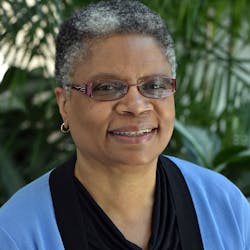Reconsidering the Civil Rights Movement in the Footsteps of ʻAbdu'l-Bahá
- Details
- Resources
This talk uses principles of race unity described by 'Abdu'l-Bahá and family/ personal history to describe how such principles affected the author's research and writing about a critical period in U.S. history, the civil rights movement. Many civil rights activities tended toward resistance, but were constructive, and many aspects of Black culture during that time did show evidence of constructive resilience. This paper notes the similarities and dissimilarities between the traditional civil rights movement in that state and Bahá’í concepts of constructive resilience.
June Manning Thomas
June Manning Thomas, PhD, has studied and written several articles and books about race unity and anti-Black racism, such as Redevelopment and Race: Planning a Finer City in Postwar Detroit; co-edited The City after Abandonment; and the recent Struggling to Learn: An Intimate History of School Desegregation in South Carolina. She is Professor Emerita of Urban and Regional Planning at the University of Michigan and a faculty member of the Wilmette Institute.

45th Annual Conference
In the Footsteps of ʻAbdu’l-Bahá: Contributing to the Discourses of Our Time
The views expressed in this recording are those of the presenter and do not necessarily represent the views of the Association for Bahá’í Studies, nor the authoritative explications of Bahá’í writings.